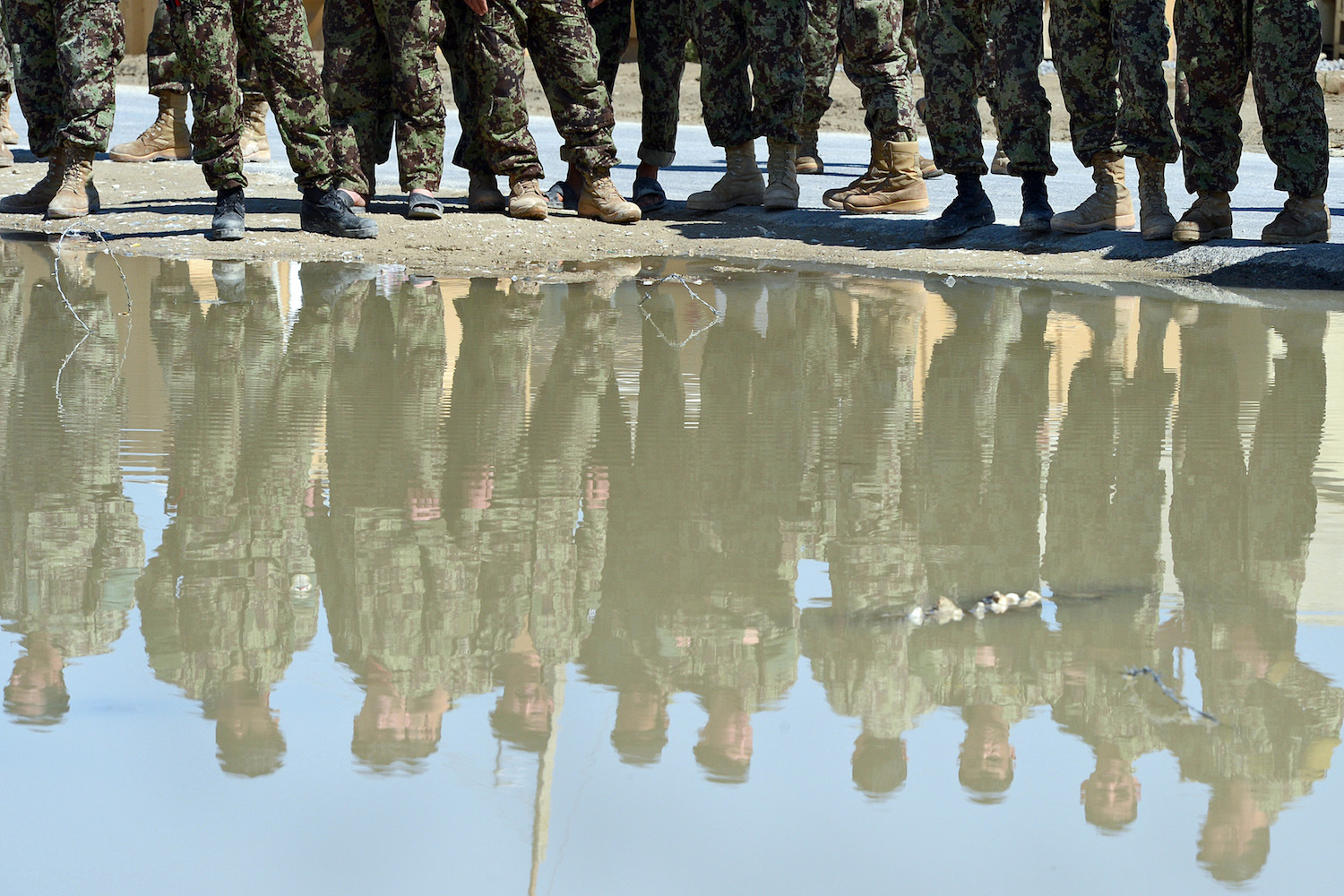- New Delhi is funding an ambitious dam near Kabul that could reduce water flow to its rival downstream. The project might spark the world’s next conflict.
Foreign Policy Magazine
ELIZABETH HESSAMI

Most of Afghanistan is currently experiencing a 60 percent drop in the rain and snowfall needed for food production. The rapid expansion of Kabul’s population, extreme drought conditions across the country, and the specter of climate change have exacerbated the need for new water infrastructure. But building it is politically complicated; the Afghanistan-Pakistan border region is defined by its complex maze of transboundary rivers and there is no legal framework in place to avoid major conflict between the nations.
It’s no surprise, then, that in the Chahar Asiab district of Kabul, on a tributary of the Kabul River, the Maidan, work is scheduled to begin soon on the Shahtoot Dam. The dam will hold 146 million cubic meters of potable water for 2 million Kabul residents and irrigate 4,000 hectares of land. It will also provide drinking water for a new city on the outskirts of Kabul called Deh Sabz. Afghanistan is finally, after decades of devastating wars, in a position to begin to develop its economy and electricity from hydropower.
But this ambitious development is fueling fears downstream in Pakistan that the new dam will alter the flow of the Kabul River and reduce the water flows into Pakistan that could severely limit the country’s future access to water. The Pakistani media outlet Dawn has reported that there could be a 16 to 17 percent drop in water flow after the completion of the Shahtoot Dam and other planned dams.
Beyond reducing water flow to Pakistan, the Shahtoot Dam has a unique capacity to escalate tensions in the region thanks to its funding from India.Beyond reducing water flow to Pakistan, the Shahtoot Dam has a unique capacity to escalate tensions in the region thanks to its funding from India. India has made major investments in Afghanistan’s infrastructure in recent years—from highway construction to repair of government buildings and dams damaged by conflict.
Since 2001, India has pledged about $2 billion total in development projects in Afghanistan. And while Afghan analysts have made the case that the dam is critical to surviving future water shortages in Afghanistan, Pakistani officials in Islamabad are casting India’s investment in a harsher light, contending that the dam is merely the latest move in India’s grand plan to strangle Pakistan’s limited water supply. Because Pakistan has failed to build enough hydropower infrastructure at home, some Pakistanis fear it might have to buy electricity from Afghanistan in the future.
The U.S. Senate Committee on Foreign Relations’ 2011 report on water security in Central Asia identified coming water pressures as a regional security threat. The report captured the balancing act India must successfully pull off as a stakeholder in the construction of the Shahtoot Dam. “Providing the right support can have a tremendous stabilizing influence, but providing the wrong support can spell disaster by agitating neighboring countries.” The committee suggested that if competition over limited water resources soured Pakistan’s relationship with its neighbors, the repercussions “will be felt all over the world.”
Water shortages are often the underlying catalysts for war. Lack of water leads to food shortages, price increases, and famine—all of which can cause instability and conflict. Recent conflicts in Syria and Yemen grew out of destabilizing water shortages that, along with other factors, led to all-out war. A similar dispute has been brewing between Egypt and Ethiopia as Egypt fears Ethiopia’s Grand Ethiopian Renaissance Dam will reduce its share of the Nile River’s flow.
Afghanistan’s president, Ashraf Ghani, has made it clear that improving water availability via dams is a top national priority, and it’s not hard to see why: Afghanistan’s wells are drying up. A 2017 study by Afghan, German, and Finnish universities stresses that Afghanistan desperately needs better water infrastructure and water management.
The city of Kabul was only built to support 1 million people, but in 2018 it is rapidly expanding toward a population of 5 million. Most Kabul residents currently depend on groundwater sources, which are depleting rapidly in part due to thousands of unregulated wells. The Shahtoot Dam could provide desperately needed clean drinking water and would irrigate thousands of acres of land in a country where 85 percent of people rely on agriculture for their livelihoods.
But Afghanistan’s pressing needs do little to diminish neighboring Pakistan’s anxieties, as both countries are water-stressed and depend on the Kabul River for drinking water, irrigation, and powerAfghanistan’s pressing needs do little to diminish neighboring Pakistan’s anxieties, as both countries are water-stressed and depend on the Kabul River for drinking water, irrigation, and power generation. Pakistan has a legitimate concern over India’s investment in Afghan dams, as the Kabul River’s water flows into Pakistan could be cut or severely limited by the storage dams, greatly increasing tensions in a region that is already on edge. It is not just one dam that is alarming for Pakistan. India has assisted Afghanistan with studies on the feasibility of a total of 12 dams to be built on the Kabul River, which could generate 1,177 megawatts of power and further reduce water flow into Pakistan.
That’s a threat to a country like Pakistan, which is highly dependent on agriculture. A World Resources Institute report states that Pakistan could become the most water-stressed nation in the region by 2040, before accounting for the potential of reduced water flow from the Kabul River.




